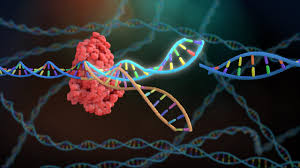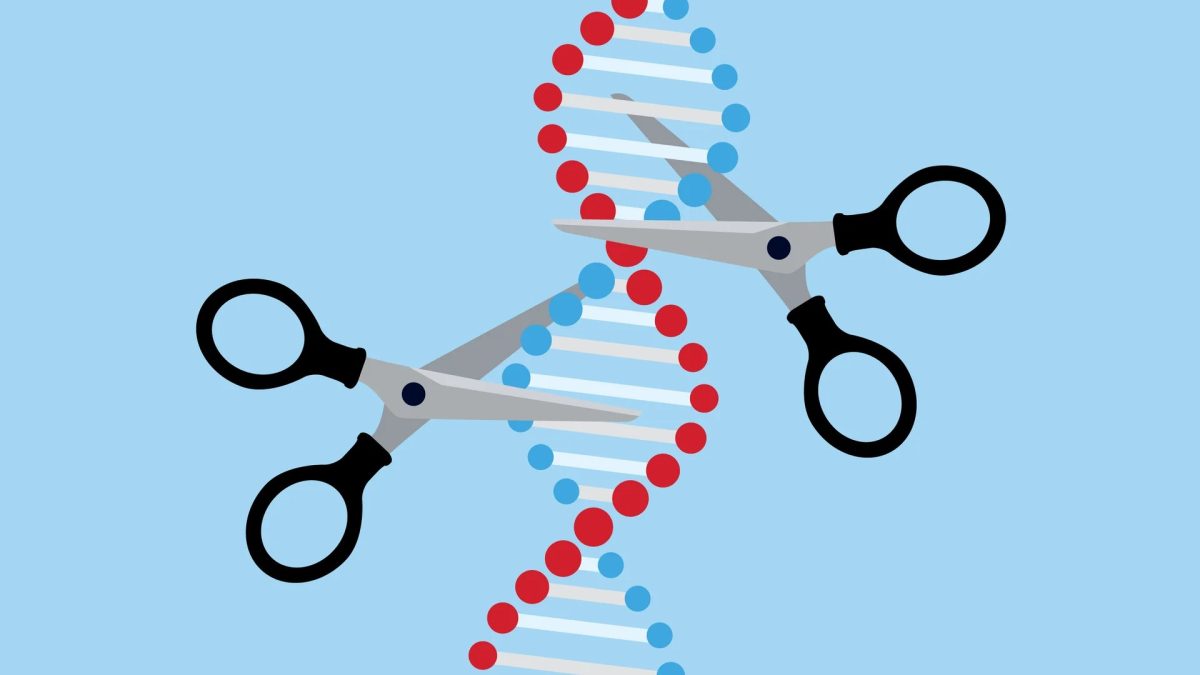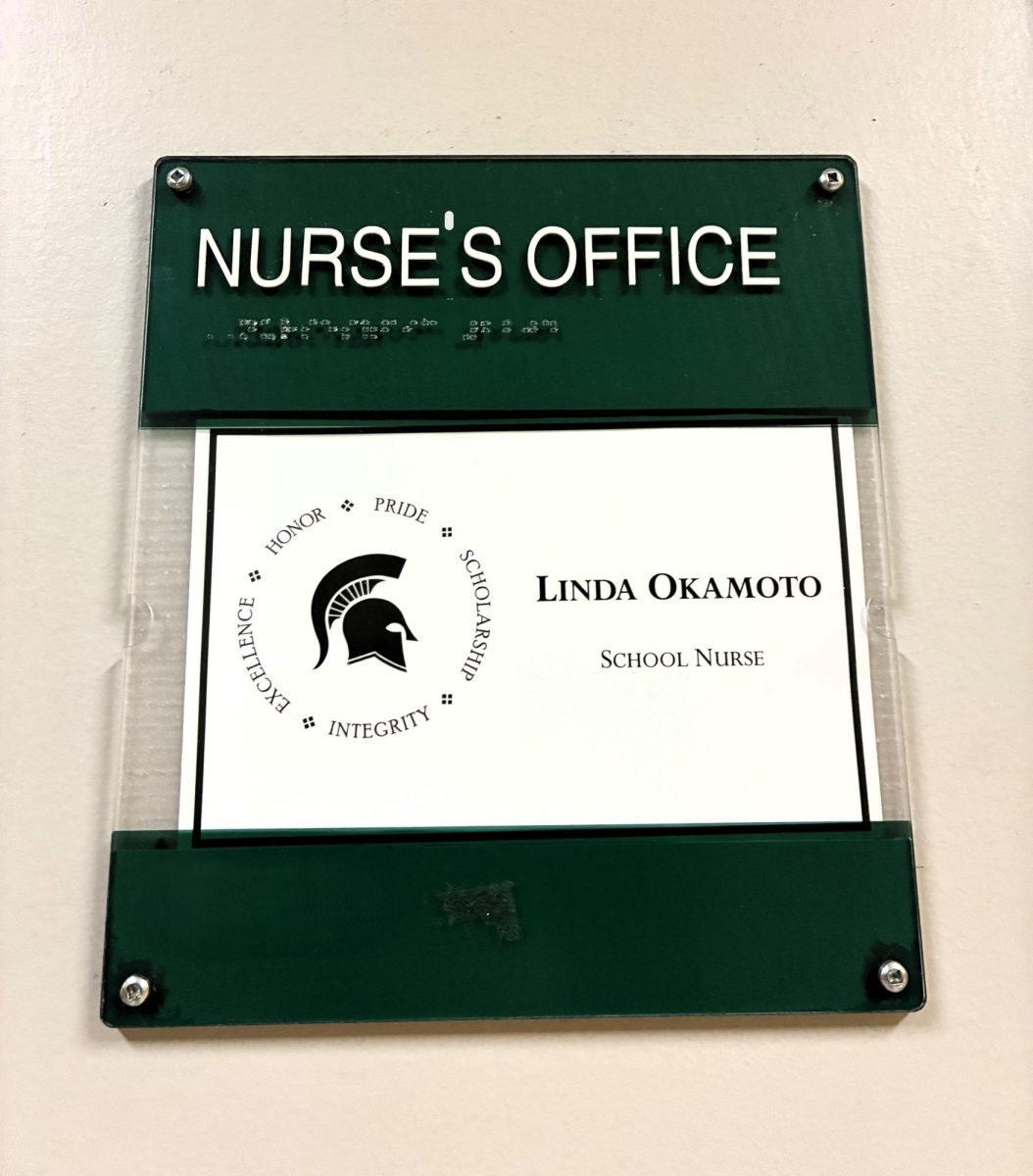Imagine a future where we can cure genetic diseases before birth, bring back extinct species, or even design plants to withstand climate change. That future is closer than ever, thanks to CRISPR — a revolutionary gene-editing tool that’s changing science, medicine, and ethics.
CRISPR (Clustered Regularly Interspaced Short Palindromic Repeats) acts like a pair of scissors cutting a piece of paper. It edits genes by cutting DNA at specific points to remove or correct faulty genes. It then uses the natural DNA repair processes to fix the DNA. CRISPR also uses an enzyme called Cas 9 that acts as a pair of ‘molecular scissors’ that can cut the two strands of DNA at a specific location in the genome so that bits of DNA can then be added or removed.
According to the National Institutes of Health, “CRISPR is used to treat genetic diseases like sickle cell anemia and cystic fibrosis by correcting the faulty genes.” It is also being used to modify immune cells to better target and destroy cancer cells. Additionally, CRISPR can be used to enhance crop yields, improve nutritional content, and make crops more resistant to diseases and pests without using pesticides. Bioengineers can also use CRISPR to create microorganisms to produce bioplastics that don’t harm the environment, improving products like biofuels or pharmaceuticals.

CRISPR is both exciting and concerning because it gives us the power to edit genes; this could cure disease but also brings up serious ethical questions. On one hand, it could help people live healthier lives by preventing conditions like cancer or genetic disorders. But on the other hand, it could be misused to create ‘designer babies,’ where people choose traits like appearance or intelligence. The New York Times said that “it raises the prospect that gene editing may one day protect babies from a variety of hereditary conditions.” There’s also the risk of making permanent changes to the human gene pool without fully understanding the long-term effects.
As CRISPR technology continues to grow, its impact on medicine, agriculture, and ethics will shape the way we understand and control life itself. However, its potential unethical use could impact the healthcare industry and our society.
For more information:
CRISPR & Ethics – Innovative Genomics Institute









